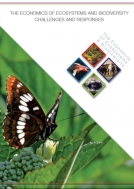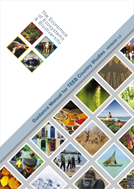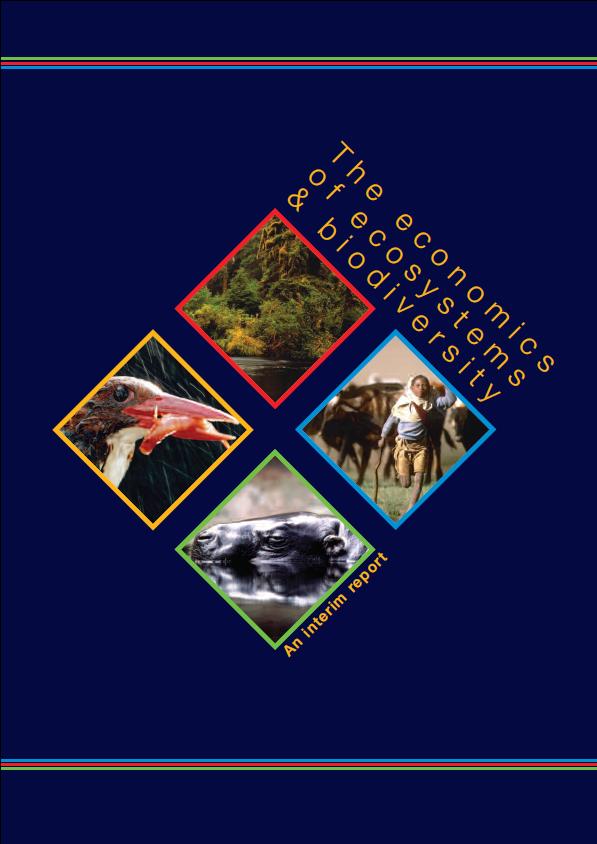The Approach
Because nature is often invisible in the economic choices we make, we have steadily been drawing down our natural capital—without understanding either what it really costs to replace services provided for free by nature, or that man-made alternative solutions are sometimes far too expensive for these services to be replaced or substituted.
The TEEB initiative seeks to draw attention to the invisibility of nature in the economic choices we make across the domains of international, national, and local policy-making, public administration, and business. TEEB sees this invisibility as a key driver of the ongoing depletion of ecosystems and biodiversity.
TEEB advocates a three-step approach to analyzing and structuring valuation of biodiversity and ecosystem services, guided by three principles:
- Recognizing value in ecosystems, landscapes, species and other aspects of biodiversity is a feature of all human societies and communities and is sometimes sufficient to ensure conservation and sustainable use. For example, the existence of sacred groves in some cultures has helped to protect natural areas and the biodiversity they contain.
- Demonstrating value in economic terms is often useful for decision-makers to consider the full costs and benefits of nature rather than just those that enter the markets in the form of private goods. An example would include calculating the values of conserving the ecosystem services provided by wetlands in controlling floods, as compared to building flood defenses.
- Capturing value involves the introduction of mechanisms that incorporate the values of biodiversity and ecosystems into decision-making through incentives and price signals. This can include payments for ecosystem services, reforming environmentally harmful subsidies or introducing tax breaks for conservation.
Is TEEB ‘putting a price on Nature’?
Regarding TEEB and valuation in general, there exists a concern that we are ‘financializing’ nature and its services, which will ultimately lead to its commodification and marketization. More specifically, this criticism suggests that nature, once its values are identified and expressed in monetary terms, will become a market commodity and, like any other, subject to free trade. Moreover, it is argued that, in becoming privatized, previously public ecosystem goods and services will become accessible to the very same private interests responsible for our planet’s degradation.
Though these are valid concerns, it could be argued that essential ecosystem services are already being ‘traded’ in precisely this manner, sometimes for an implicit price of zero. Land concessions granted for mining or logging usually do not account for the ecosystem services lost through subsequent land-use change. Ocean commons continue to be open access and free. If nothing else, valuation in combination with liability regulations makes destructive extraction less attractive by adding (usually quite significant) financial costs.
Placing a value on nature’s ecosystem services should not be misconstrued as ‘putting a price on nature’. Economic policy utilizes several instruments – some market-based and some not – to reflect the value of nature’s services. TEEB does not suggest placing blind faith in the ability of markets to optimize social welfare by privatizing the ecological commons and letting markets discover prices for them. What TEEB offers is both a model for communicating to decision-makers in their own language, dominated by economics, as well as a toolkit for evaluating and integrating good stewardship into their decisions.
 Read more about how TEEB addresses these and other criticisms in “TEEB: Challenges and Responses” (2014).
Read more about how TEEB addresses these and other criticisms in “TEEB: Challenges and Responses” (2014).
This presentation below given by Dr Andrea Bassi to the Africa Natural Accounting Community of Practice is a useful entry point to explaining scenario analysis and modelling fit into the TEEB Approach. It was delivered in the context of the TEEB work on Natural Capital Accounting but refers also to the TEEB Tanzania EU ENRTP-funded Country Study which has a agri-food dimension. The presentation shows the need to integrate different types of models in order to answer policy questions that have economic, social and ecological dimensions.
The Timeline
 TEEB redesigns its logo
TEEB redesigns its logo
A new logo commemorates TEEB’s 10-year anniversary since the launch of the TEEB reports.
TEEB Study Leader receives Tyler Prize
The Tyler Prize for Environmental Achievement was awarded to Pavan Sukhdev for bringing the economic consequences of environmental degradation and loss to the attention of corporate and political decision-makers. Press release
October 2018
TEEBAgriFood Framework receives Future Policy Vision award
For its comprehensive approach providing opportunities to contribute to the majority of the SDGs and offering an effective system of ‘true cost accounting’, and its respect for the Future Just Lawmaking Principles and Elements of Agroecology, TEEBAgriFood was recognized with the Future Policy Vision Award 2018, awarded by the World Future Council in partnership with FAO and IFOAM – Organics International. Article
June 2018
 TEEB for Agriculture & Food
TEEB for Agriculture & Food
On the occasion of World Environment Day, a ‘Scientific and Economic Foundations’ report is launched in New Delhi, India under the leadership of Alexander Müller. The report addresses the core theoretical issues and controversies underpinning the evaluation of the nexus between the agri-food sector, biodiversity and ecosystem services and externalities including human health impacts from agriculture on a global scale. Press release | Read more
November 2016
TEEB Study Leader receives Blue Planet Prize
The Asahi Glass Foundation recognized Pavan Sukhdev for his pioneering research in mainstreaming ecosystem services for improved public policies and business practices. Press release
May 2013
 Guidance Manual for TEEB Country Studies
Guidance Manual for TEEB Country Studies
A report is launched in order to provide guidance to practitioners in the areas of policy analysis and ecosystem service valuations, communicating findings, following up and finally applying results.
February 2013
 TEEB for Water & Wetlands
TEEB for Water & Wetlands
On the occasion of World Wetlands Day, a report is launched in Geneva, Switzerland to offer insights on critical water-related ecosystem services in order to encourage additional policy momentum, business commitment, and investment in the conservation, restoration, and wise use of wetlands. Press release
January 2012
Shifting from analysis to action
Capitalizing on the momentum created by the TEEB Study Reports, the initiative moved into a phase of implementation and facilitation. The goal was to roll out the recommendations of TEEB by supporting efforts at the regional, national and sub-national levels, developing a TEEB for Business Coalition, exploring a deeper analysis of sectors and biomes, and carrying out training and capacity-building activities (including the development of a Guidance Manual).
March 2011
UNEP hosts the TEEB Office
TEEB finds its institutional home at the United Nations Environment Programme in Geneva, Switzerland and sets up an office to manage day-to-day operations and communications activities.
October 2010
The TEEB Study Reports are launched
Based on a call for deeper analysis, four end user-targeted publications, as well as a synthesis report, were presented at the 10th Conference of the Parties to the Convention on Biological Diversity (CBD COP-10):
- TEEB Ecological and Economic Foundations: key concepts and methodologies for the economic valuation of biodiversity and ecosystem services
- TEEB in National and International Policy Making: analysis and guidance on how to value and internalize biodiversity and ecosystem values in policy decisions
- TEEB in Local and Regional Policy and Management: analysis, guidance and case studies for mainstreaming biodiversity and ecosystem values at regional and local levels
- TEEB in Business and Enterprise: analysis and guidance on how business and enterprise can identify and manage their biodiversity and ecosystem risks and opportunities
- TEEB Synthesis Report: key findings of the TEEB reports and useful policy recommendations for mainstreaming the economics of nature into decision-making
*Draft versions of the reports, summaries and quick guides are also available.
May 2008
 The TEEB Interim Report is launched
The TEEB Interim Report is launched
Presented at the High-Level Segment of the 9th Conference of the Parties to the Convention on Biological Diversity (CBD COP-9), the TEEB Interim Report laid a broad foundation where evidence and examples of valuation were collated, elements of a biodiversity/ecosystem valuation framework identified, and long standing issues such as ethics in making choices regarding future values were re-emphasized. Press release
March 2007
TEEB is commissioned
At the G8+5 Potsdam Meeting of Environment Ministers, a call was launched for a global analysis of the economic significance of biodiversity, the costs of the loss of biodiversity and the failure to take protective measures versus the costs of effective conservation. Sigmar Gabriel (then Minister for the Environment in Germany) and Stavros Dimas (then European Commissioner for the Environment) agreed to take forward and launch the TEEB initiative under the leadership of Pavan Sukhdev.











